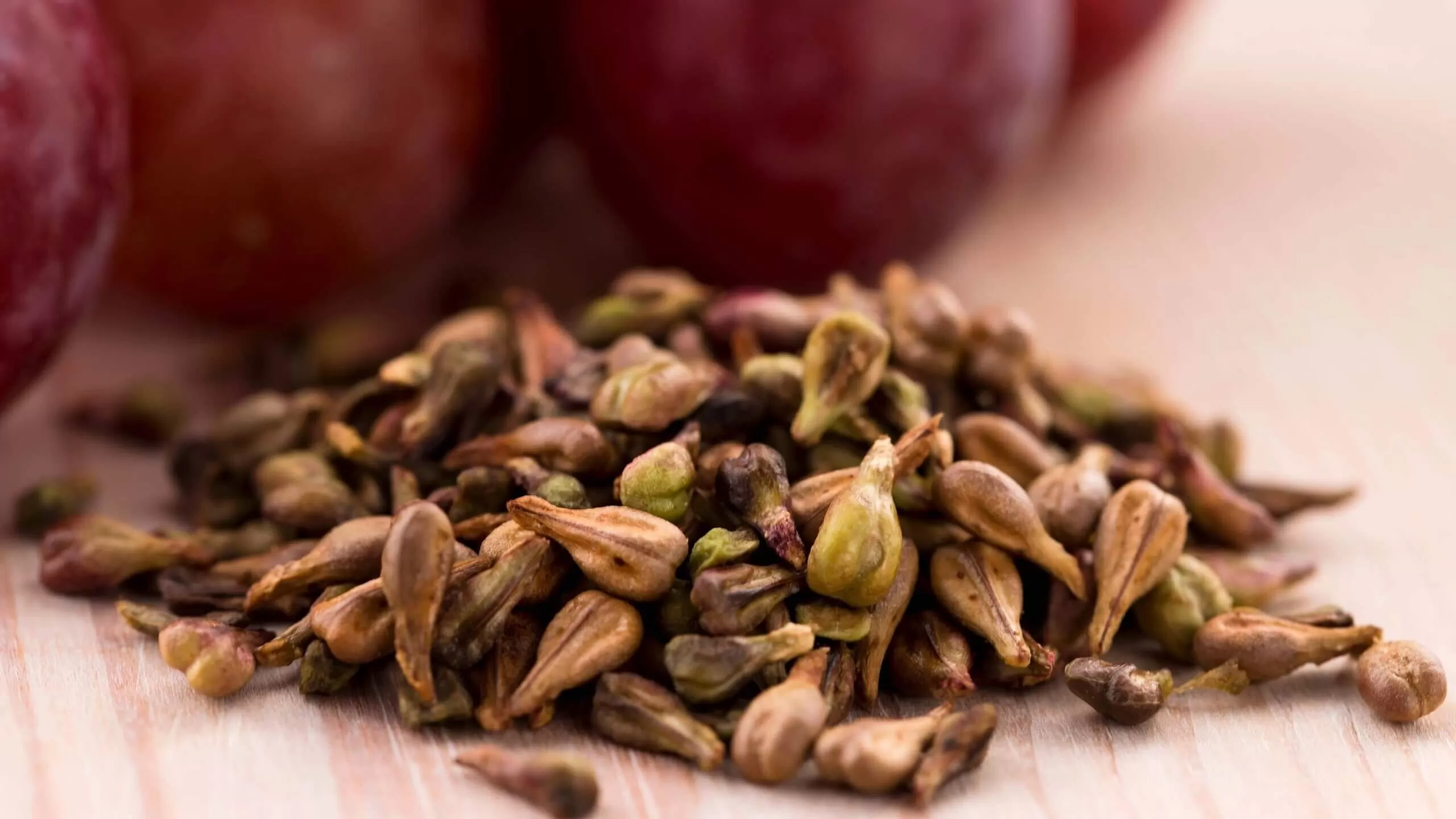- 0086-571-85302990
- sales@greenskybio.com
What are the negative side effects of grape seed extract?
2025-03-23
Grape Seed Extract has gained popularity as a natural supplement due to its high concentration of antioxidants, particularly proanthocyanidins. These compounds offer health benefits ranging from cardiovascular support and anti-inflammatory effects to skin protection and improved circulation. However, despite its widespread use and general perception as safe, Grape Seed Extract may pose certain negative side effects for some individuals, especially when consumed in large doses or without proper guidance. This article explores the possible adverse effects associated with Grape Seed Extract, highlighting the importance of informed usage and professional consultation.
The Composition and Benefits of Grape Seed Extract
Rich in Antioxidants: Grape seed extract is celebrated for its abundance of antioxidants, primarily oligomeric proanthocyanidins (OPCs), which contribute to reducing oxidative stress and fighting free radicals. These antioxidants are linked to various health benefits, including supporting cardiovascular health, enhancing skin elasticity, improving circulation, and modulating inflammation.
Usage and Popularity: Due to its beneficial properties, grape seed extract is commonly included in dietary supplements, skincare products, and functional foods. It is favored for its natural origin and perceived efficacy in bolstering overall health.
Potential Negative Side Effects
Despite its positive profile, certain individuals may experience adverse effects related to grape seed extract consumption. These side effects could stem from individual sensitivities, interactions with medications, or excessive intake:
Gastrointestinal Issues: Some consumers report digestive discomfort when taking grape seed extract. Symptoms may include nausea, bloating, diarrhea, and abdominal pain. These issues could be exacerbated by high doses or pre-existing gastrointestinal conditions. Reducing dosage or discontinuing use might alleviate symptoms.
Allergic Reactions: Individuals with allergies to grapes or similar fruits might be susceptible to allergic reactions from grape seed extract. Symptoms can range from mild, such as skin rashes and itching, to severe, including respiratory difficulties or anaphylaxis. Those with known allergies should avoid the supplement and discuss alternatives with healthcare providers.
Bleeding Risks: Due to its anticoagulant properties, grape seed extract may increase bleeding risks, particularly for individuals on blood thinners like warfarin or aspirin. These interactions might lead to bruising or prolonged bleeding, necessitating caution and consultation with healthcare professionals before initiating use.
Blood Pressure Alterations: While grape seed extract can aid in lowering high blood pressure, it might pose a risk for individuals with hypotension (low blood pressure) by further reducing blood pressure levels. Those with pre-existing low blood pressure should be careful and seek medical advice to avoid complications.
Interactions with Medications: Grape seed extract may interfere with various medications, including those metabolized in the liver via cytochrome P450 enzymes. Such interactions could alter drug efficacy or increase the potential for side effects. Consulting with healthcare providers ensures that use aligns safely within medication regimens.
Headaches and Dizziness: Some users have reported experiencing headaches or dizziness following grape seed extract consumption. While these effects are generally mild, persistent symptoms may indicate sensitivity or intolerance, warranting reduced dosage or discontinuation.
Guidelines for Safe Use
To minimize negative side effects, individuals should consider the following guidelines when incorporating grape seed extract into their health regimen:
Dosage Recommendations: Adhere to recommended dosages provided by manufacturers or healthcare providers to avoid excessive intake that may trigger adverse effects. Adjustments based on individual health status and responses can optimize outcomes.
Professional Consultation: Seek guidance from healthcare providers, particularly if taking medications or managing pre-existing health conditions. Professional advice ensures compatibility and tailored recommendations suited to individual needs.
Monitoring and Response: Regularly monitor health responses to grape seed extract, noting any side effects or changes. Prompt reporting to healthcare professionals enables timely interventions, including dosage adjustments or alternative strategies.
Product Quality: Select high-quality supplements from reputable sources that prioritize purity and transparency. Ensuring product integrity enhances safety and effectiveness.
Alternative Options: For those experiencing adverse effects or contraindications, alternative supplements or foods rich in antioxidants may provide comparable benefits without negative side effects.
Conclusion
Grape seed extract offers notable health advantages due to its antioxidant richness but is not devoid of potential negative side effects. Understanding these adverse effects, along with responsible usage and professional consultation, is vital for safe incorporation into health practices. While some might experience gastrointestinal discomfort, allergic reactions, or interactions with medications, informed decisions can mitigate risks and optimize the supplement's benefits. Through careful monitoring and adherence to guidance, grape seed extract can remain a valuable ally in promoting health and preventing disease within a broader framework of well-being and holistic strategies.
-
Is grape seed extract anti aging?
2025-03-23
-
Is grape extract good for you?
2025-03-23
-
Is grape seed extract safe for kidneys?
2025-03-23
-
Can I Take Grape Seed Extract Every Day?
2025-03-23
-
Who Cannot Take Grape Seed Extract?
2025-03-23
-
Is Grape Seed Extract Good for Your Liver?
2025-03-23














